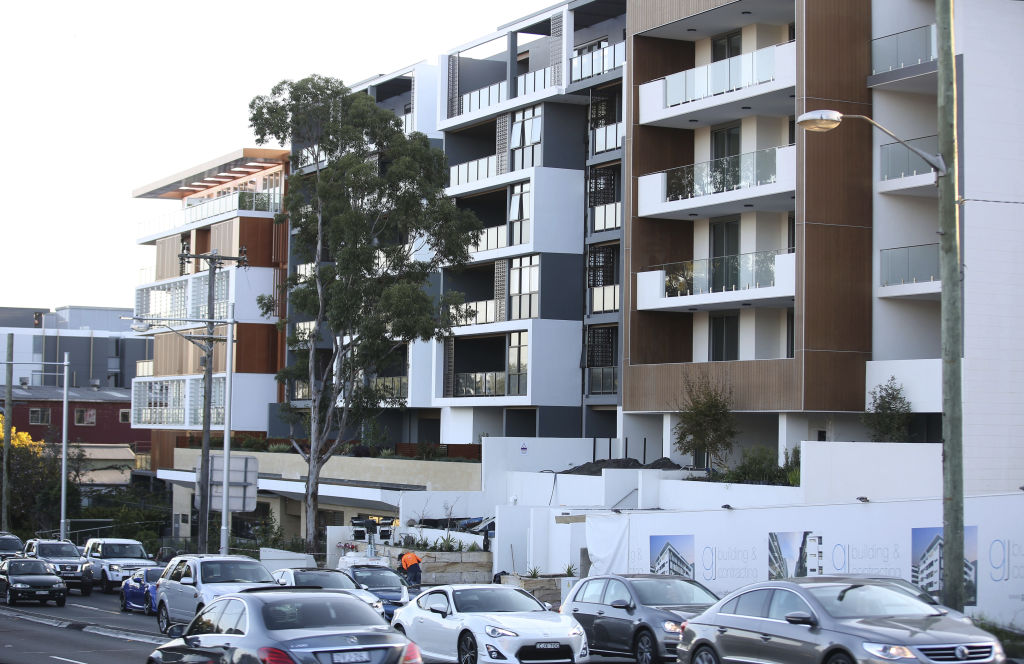Off-the-plan apartment checklist: The questions you should ask before buying a new unit
When you buy an apartment, you don’t just buy a home. You also buy a share of the building itself and the land it’s on.
Buyers unfamiliar with the intricacies of strata may not understand the gravity of that purchase, and what it can mean down the track if something goes wrong.
The recent defects scandal has highlighted the need for increased diligence among new apartment buyers, and the importance of choosing a developer capable of delivering what they promise.
Buyers now need increased awareness about what they’re buying and who built it to avoid facing hefty repair bills in years to come.
Who is the developer?

The developer is generally the owner of the land being developed, and may contract architects for design, builders for construction and consultants to oversee the project. Larger developers often handle the entire process in-house.
The people and companies involved will have a major effect on the quality of the finished product, and buyers should investigate everyone tasked with delivering the project, according to Adam Sparkes, general manager at McGrath Projects.
“Look at the directors behind the companies,” he says. “What’s their experience? What’s their CV like?”
Buyers should look for consistency in the project team throughout development, Sparkes says. “Having a named architect involved will add some credibility to the design. But sometimes the named architect might come up with concept and then a lesser-known architect may take over.”
“Look at the directors behind the companies. What’s their experience? What’s their CV like?”
Purchasers should ask about the developer’s process for quality control, according to Colliers International residential managing director Peter Chittenden.
“Do they have an external consultant to manage the builder? What is their process when they have to pay the builder to ensure that the work is done properly?”
Buyers should ask the developer about their customer service after completion, Chittenden says. “If there are any issues with defects or any issues with the building, how are they going to handle it and what’s their approach for making sure everything is as smooth as possible?”
What’s their track record?

Buyers should quiz developers about their previous projects, and if a developer is forthcoming it’s often a good sign.
“Most developers that have a good track record would be proud of their past achievements,” Sparkes says.
A developer’s portfolio provides the best indication of how a new apartment will turn out, according to Mirvac head of residential Stuart Penklis.
“One of the most important things is to go and physically inspect their early developments to see if reality matches the promise,” he says.
Buyers should also talk to owners and building managers of existing properties built by the developer to understand the quality of their past projects.
“Most important is what has been the purchaser’s experience post-settlement in dealing with the developer with issues that may arise,” Penklis says.
“There’s always going to be minor items that come around with any new building that need to be rectified. The true test of the quality of a developer is the way in which they respond and deal with those items.”
What’s their reputation?

Well-regarded developers’ names are often used in the marketing of established properties.
“If they reference that it’s been built by a particular developer, it’s a pretty good sign that developer has a good reputation,” Penklis says.
“If it’s difficult to work out who built the building, that would raise questions why the developer hasn’t been proud to attach their name to a past project.”
“If it’s difficult to work out who built the building, that would raise questions…”
Buyers seeking certainty should avoid first-time developers, Chittenden says. “I don’t think you want to be with a developer that hasn’t undertaken work before,” he says. “That would be the biggest risk.”
Affordability and convenience means well-located apartments will continue to prove popular for a wide variety of buyers. Despite several high-profile incidents, major problems are rare.
“If we compare our construction methods in Australia on a worldwide stage, we do have very strict guidelines to ensure our buildings are built to a very high standard,” Sparkes says.
Increased scrutiny on the construction sector has meant buyers have become more educated and expect a quality product, Penklis says.
“It just reinforces the importance of buying from developers that have a good track record.”
We recommend
States
Capital Cities
Capital Cities - Rentals
Popular Areas
Allhomes
More










